Vietnamese Farmers: From Traditional to Professional and Smart
Perspectives from the scientific conference of the same name September 24, 2025, at the School of Public Policy and Rural Development
On September 24, 2025, at the School of Public Policy and Rural Development (Ho Chi Minh City), JVSF was honored to participate and contribute a presentation at the scientific conference “Vietnamese Farmers – from Traditional to Professional and Smart”. This was an important forum, connected online to multiple locations across the country, bringing together a large number of experts, scientists, managers, businesses, cooperatives, and representatives of farmers’ associations from various provinces and cities to discuss the future of agriculture and the development path for Professional and Smart Farmers in Vietnam.
In his opening remarks, Vice Minister of Agriculture and Environment Tran Thanh Nam emphasized the core role of building the image of professional farmers who can apply science and technology and closely link with businesses. The Vice Minister also pointed out the importance of Resolution 19-NQ/TW of 2022, which aims to build “ecological agriculture, modern rural areas, and civilized farmers,” with farmers as the main actors. JVSF is pleased to present the main contents that were analyzed and discussed in depth at the conference.
Part 1: Shaping the Future of Agriculture Through Core Concepts
1.1. Foundational Concept: Who is a Farmer?
One of the central issues of the conference was the need to correctly, clearly, and uniformly understand the concept of “farmer.” Dr. Nguyen Trung Dong – Rector of the School of Public Policy and Rural Development, stated that farmers are not only a group that benefits from policies but also the direct force of production and policy implementation at the grassroots level. However, the understanding of “farmer” still varies among different documents and sectors, leading to the risk of scattered and unfocused policies.
At the conference, Dr. Nguyen Trung Dong boldly proposed a comprehensive concept that includes the following four core attributes:
- Directly participates in agricultural production activities: This includes the roles of management, coordination, supervision, and direct decision-making throughout the production process.
- Considers agricultural production as the main source of livelihood: This is the factor that defines their “professional identity,” generating the majority of their income and ensuring the livelihood of their families.
- Primarily uses household labor: This is a characteristic of the production organization model, but it needs to be understood flexibly in the modern context where they can hire labor or use machinery.
- Masters the agricultural production process: This is the most important attribute, affirming their role as the decision-making entity that controls the entire production activity and is responsible for the profit-loss results.
1.2. Socio-Economic Context: The Driving Forces of Modernization
Vietnam’s agriculture is at a historic turning point. The agricultural labor force has sharply decreased from 24.57 million people (2013) to 13.67 million people (2024) and is aging. This change forces agriculture to shift from a labor-intensive model to a technology- and capital-intensive one. The future of Vietnam’s agriculture no longer depends on the number of farmers, but on the quality and productivity of a smaller, more highly specialized core team.
1.3. From Subsistence to Business: Defining the “Professional Farmer”
In this context, the “professional farmer” model emerges as a market-oriented economic entity. They are built on three main pillars:
- Skilled in agricultural production: A dual capability, including both technical knowledge (VietGAP, GlobalGAP) and business thinking (planning, cost accounting, market connection).
- Practices farming as a main livelihood: A serious commitment and investment in agriculture as a long-term career, organizing production on a large scale.
- Has professional ethics and resilience: Upholds “CREDIBILITY,” produces responsibly for consumers and the environment, and has the resilience to accept risks.
According to Dr. Nguyen Anh Thong – from the Institute of Policy and Strategy for Agriculture and Rural Development, when recognized as “professional,” farmers will be given priority support for loan policies, agricultural insurance, and participation in agricultural extension and technology transfer programs.
1.4. New Horizons: Defining the “Smart Farmer”
“Smart farmer” is the next evolutionary step, deeply integrating scientific thinking and digital capabilities. This definition should be understood in a dual sense:
- Digital Intelligence: The ability to use high technology such as IoT, AI, Drones… to manage production, analyze data, and connect to the market.
- Ecological Intelligence: As emphasized by former Minister Le Minh Hoan, “smart” also means “thinking ahead.” It is a deep understanding of sustainability principles, knowing how to nurture the soil, and understanding the value of circular and nature-based agriculture.
A truly smart farmer is one who can integrate both: using digital technology while also applying scientific solutions to enrich the agricultural ecosystem.
Part 2: Voices from the Field and Policy Recommendations
The conference atmosphere became lively with practical sharing from various localities. Mr. Nguyen Van Su – Chairman of the Can Tho City Farmers’ Association, expressed concern that the professionalism of farmers is not yet uniform, with many still operating on a small scale and lacking connection. Sharing this view, Mr. Truong Thanh Quang – Vice Chairman of the Ho Chi Minh City Farmers’ Association, proposed that the Ministry of Agriculture and Environment soon issue a legal framework and specific criteria to shape supportive policies correctly.
On the other hand, success stories brought great inspiration. Mr. Nguyen Anh Dung – Director of Dinh An Agricultural Seed Cooperative (Dong Thap), who has successfully bred 8 high-quality rice varieties, shared his secret: “You must understand your crops and livestock; you must apply science and technology, and keep clear records of the process; and you must continuously update with technology.” His circular production model (composting straw, raising fish in rice fields) is a vivid example of smart agricultural thinking.
Known as the “banana king,” Mr. Vo Quan Huy – Director of Huy Long An Co., Ltd. (Tay Ninh), proposed 3 key solutions: (1) Train farmers in management skills; (2) Ensure capital for green and digital transformation; (3) Develop a circular economy, utilizing agricultural by-products.
Part 3: NEMA2 – A Bridge to the Professional and Smart Farmer Model
As analyzed in Part 1.4, the concept of a “Smart Farmer” is not limited to digital technology but also deeply includes “ecological intelligence.” JVSF’s NEMA2 (Organic Carbon) product is a strategic tool, a typical example of this aspect. By providing an advanced scientific solution to improve soil, enhance the health of the microbial system, and promote sustainable farming, NEMA2 helps farmers realize a nature-based farming model. This is the expression of “smart” thinking based on ecological science, an essential step in building a force of Professional and Smart Farmers with an effective and responsible production foundation.
Images from the Conference “Vietnamese Farmers – from Traditional to Professional and Smart”
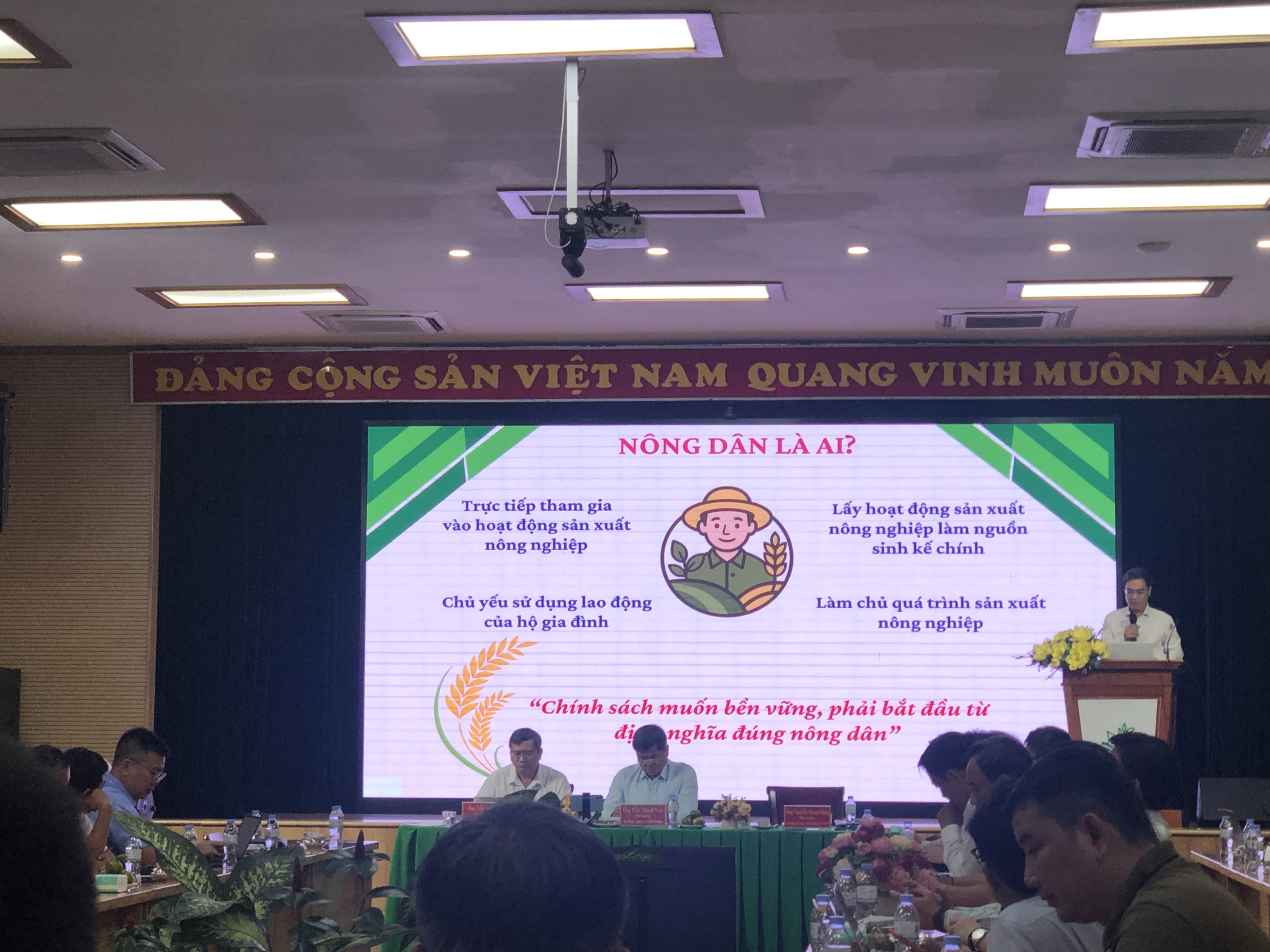
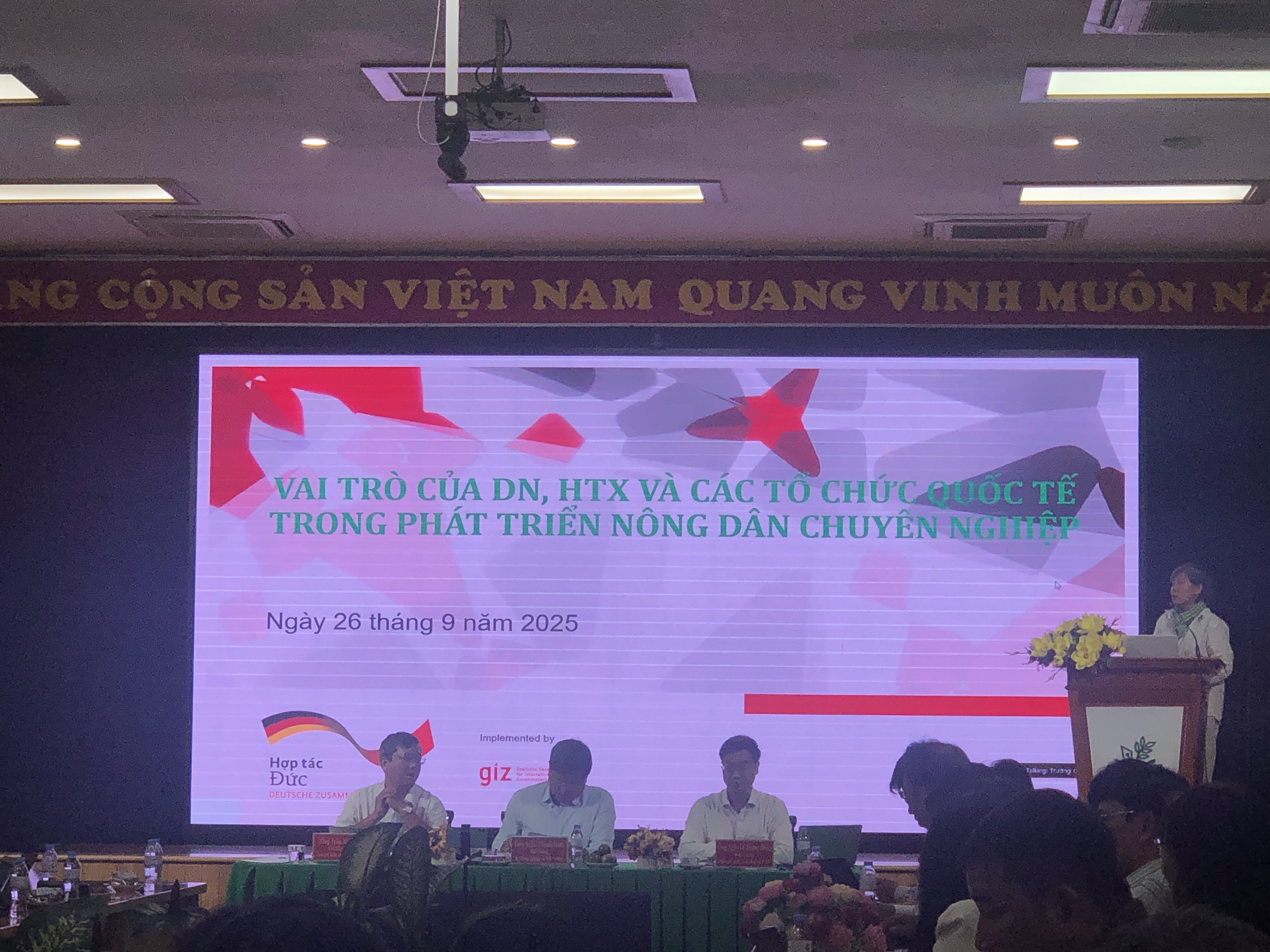
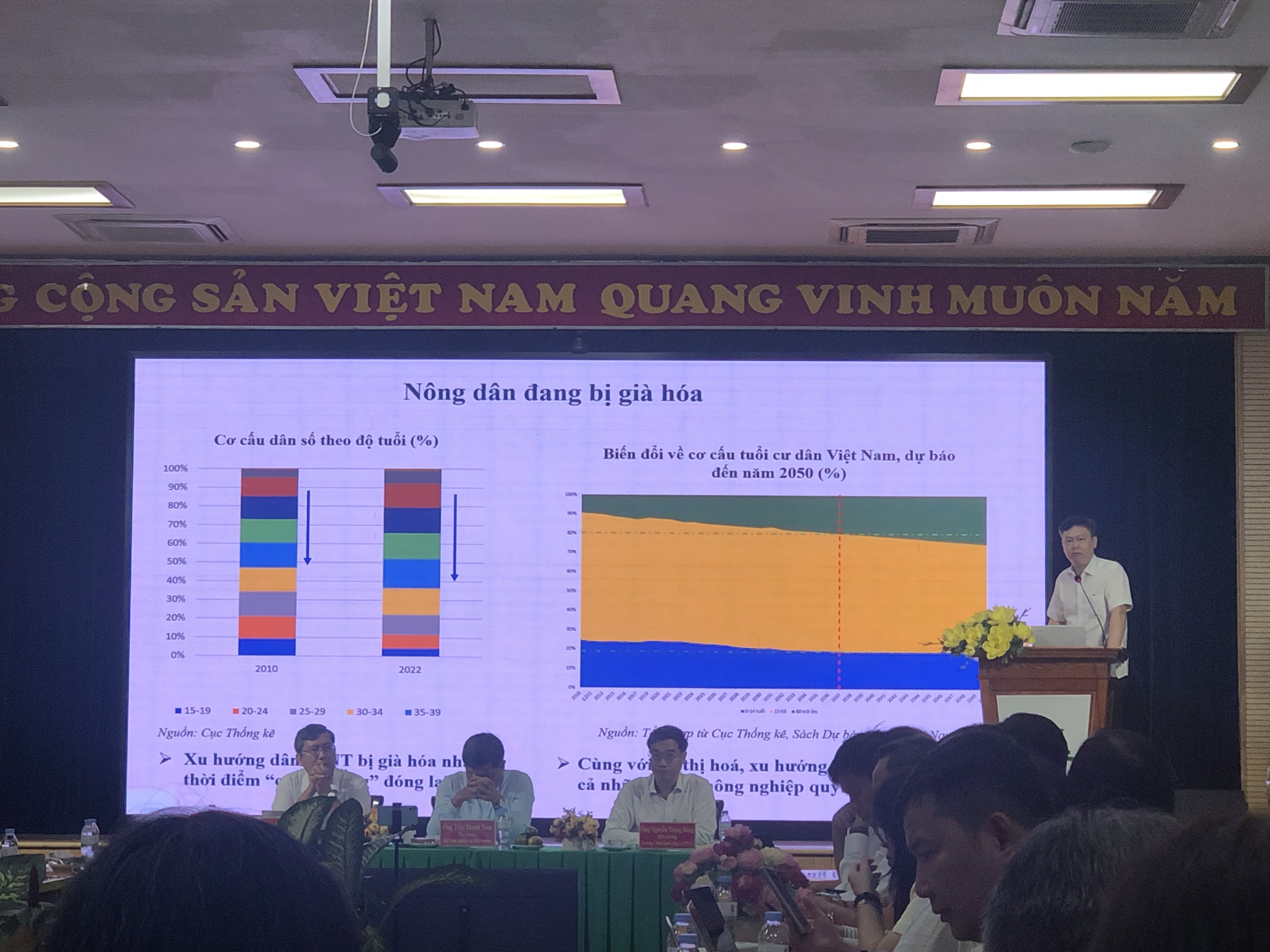
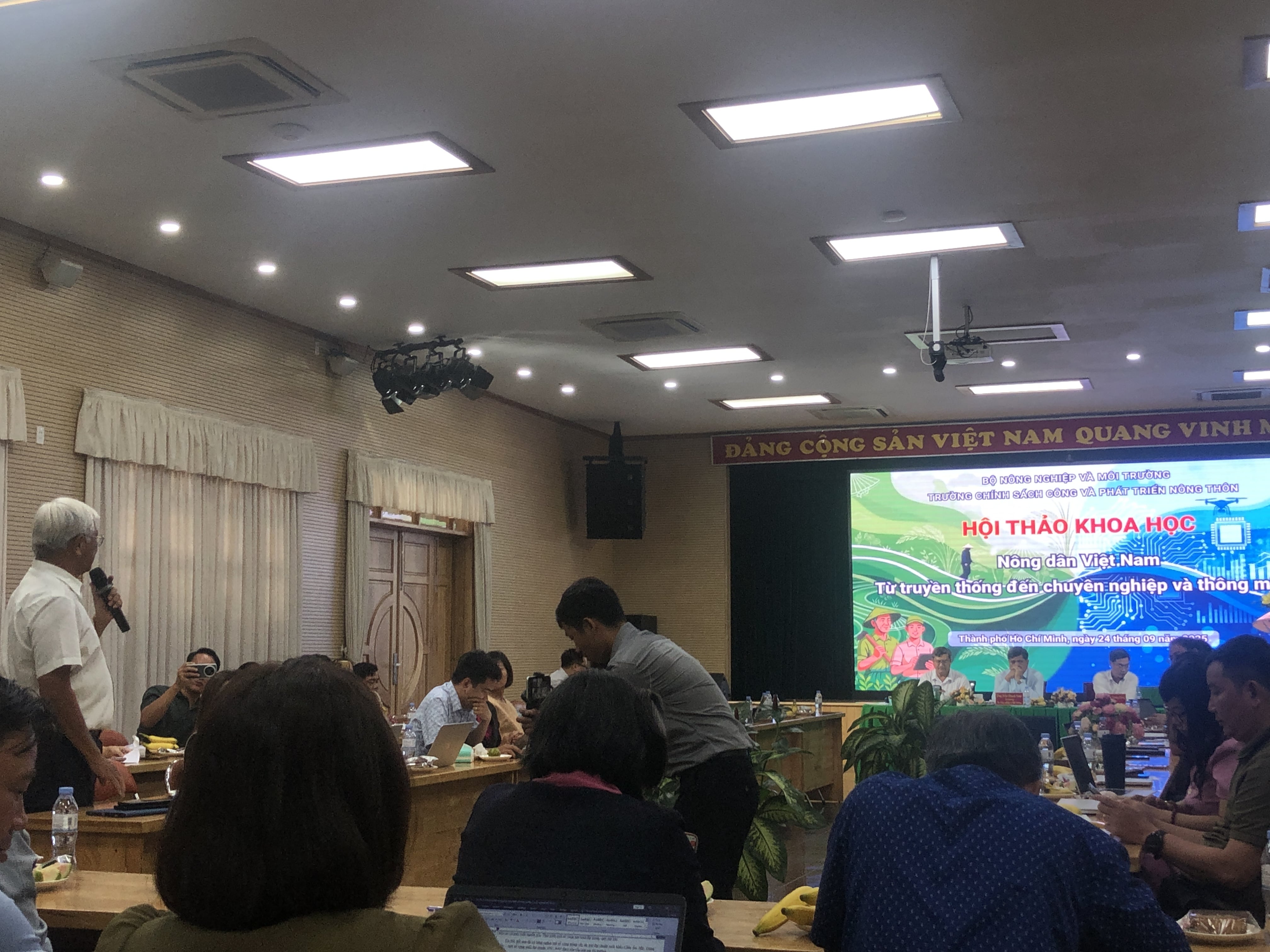
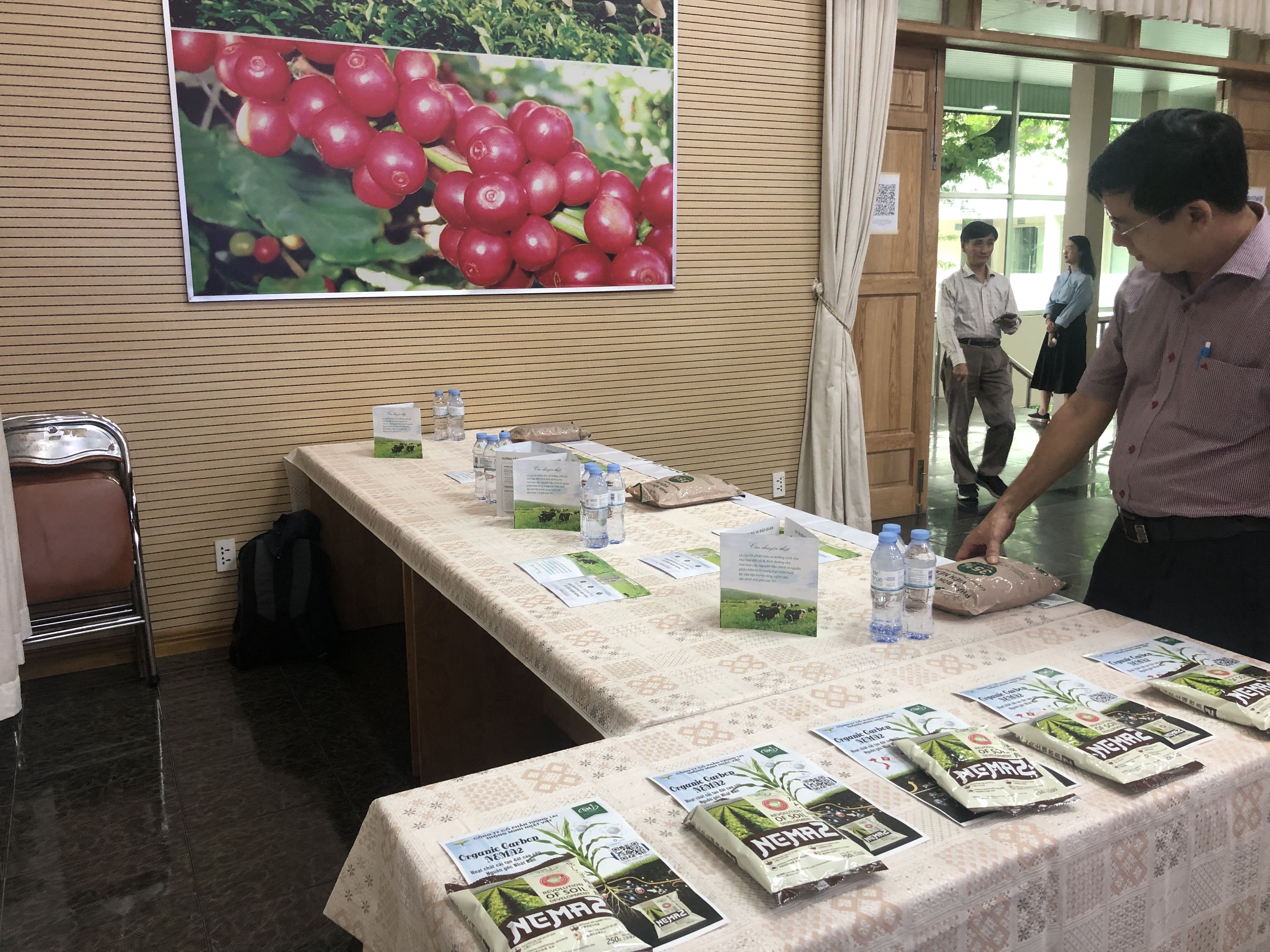
To learn more, you can access the full conference materials here.
(Source for update: Journal of Natural Resources and Environment)
















